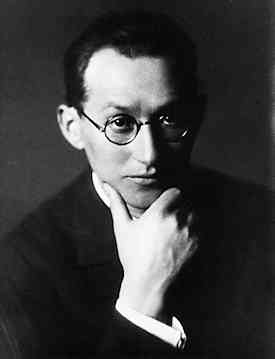Kurt Lewin
Kurt Lewin was a German-American psychologist who was one of
pioneers of social, applied and organizational psychology in the
US. Exiled from his home country of Germany before World War II,
Lewin moved to the US and continued his exploits in the field
of psychology. For many, he is recognized as the founder of social
psychology and his contributions to the field are many.
|
|

Kurt Lewin |
Born on September 9th, 1890 in Prussia, he was one of four children
in a middle-class family that moved to Berlin in 1905. He attended
both the University of Freiburg and the University of Munich and
was involved in the socialist movement as well as women's rights.
He served in World War I and suffered a wound that allowed him
to complete his Ph.D. at the University of Berlin.
Over the next 15 years Lewin began his work with the Gestalt
school of psychology and joined the Psychological Institute of
the University of Berlin where he gave lectures and seminars on
philosophy and psychology. However, his Jewish heritage and his
association with socialists forced him to move from Germany once
Hitler took power in 1933. First, Lewin moved to England and then
to America where he continued to work on his theories and developed
followers such as Eric Trist.
Lewin moved to the US in 1933 and became a naturalized citizen
in 1940. He worked at Cornell University and then for the Iowa
Child Welfare Research Station located at the University of Iowa.
Later, he became director of the Center for Group Dynamics at
MIT just after World War II. His work established the National
Training Laboratories at Bethel, Maine which created sensitivity
training considered by some to be the most significant social
invention of the century.
Forming the Tavistock Institute at MIT, Lewin created numerous
works and two of his early papers titled "Frontiers in Group
Dynamics" helped form the Tavistock Journal and Human Relations.
Unfortunately, Lewin's work was cut short when he died of a heart
attack in 1947.
Kurt Lewin managed to achieve quite a bit in his life when it
came to a variety of fields. He is the one who coined the term
"genidentity" which has gained in importance over time.
He also offered an alternative to the nature vs. nurture debate
with the interactionist perspective first developed by Herbert
Blumer. Lewin believed that there was more which shaped the personality
than just nature and nurturing.
Above all, Lewin was a practical theorist as well as an applied
researcher at a time when such work was feared by many in similar
fields because of the potential backlash. Lewin however seemed
to revel in this form of research and argued for its validity.
Along with scholars such as Paul Lazarsfeld, Lewin pursued applied
research and believe that acquiring money to further the studies
could be done in an ethical manner.
Because of this, Lewin helped change the way that research was
conducted and it helped it further his work in developing theories
that are still being studied today. Lewin was a pioneer in so
many ways and his dedication, work ethic and seemingly constant
stream of research, theories and ideas has made him one of the
giants in his field.
Rumor Has It …
… that if Lewin were alive today, he would have poked Zuckerberg
in his pouty little lips and crowned himself First King of Facebook!
Written by Kevin Lepton
Published March 28, 2015
|

